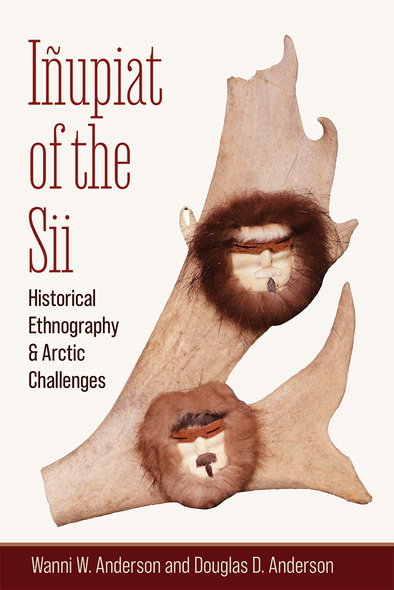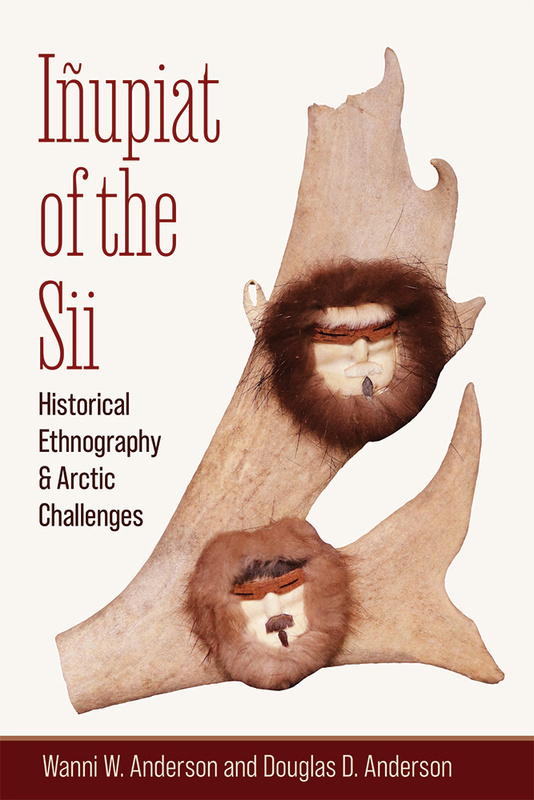
150 pages, 6 x 9
Paperback
Release Date:15 May 2024
ISBN:9781646426058
Hardcover
Release Date:15 May 2024
ISBN:9781646426041
Iñupiat of the Sii
Historical Ethnography and Arctic Challenges
University of Alaska Press
Iñupiat of the Sii is a firsthand account of Wanni and Douglas Anderson’s lived experiences during eight field seasons of archaeological and ethnographic research in Selawik, Alaska, from 1968 to 1994. This study traces the Selawik village’s history, compares Selawikers' past and current lifeways, studies the interfacing of the traditional with the modern, and explores how specific events in the Selawik past continued to shape their lives.
This fascinating book records, preserves, and contributes to the knowledge of the history and cultural lifeways of the Siilaviŋmiut people using contextual and ethnographic writing styles that apply community-based, lived-experience, and sense-of-place approaches. The authors, who have remained in contact with Selawikers since the original research period, center Iñupiaq elders’ and local Iñupiaq historians’ continued commitments to historical knowledge about the past, their ancestors, and their vast repertoire of traditional cultural and environmental knowledge. They portray the particularity of Iñupiaq life as it was lived, sensed, and felt by Selawikers themselves and as experienced by researchers. Quoted observations, conversations, and comments eloquently acknowledge Iñupiaq insiders’ narrative voices.
Providing one of only a few ethnographic reviews of an Alaska Native village, Iñupiat of the Sii will appeal to general readers interested in learning about Iñupiaq lifeways and the experiences of anthropologists in the field. It will also be useful to instructors teaching college-level students how anthropological field research should be conducted, analyzed, and reported.
This fascinating book records, preserves, and contributes to the knowledge of the history and cultural lifeways of the Siilaviŋmiut people using contextual and ethnographic writing styles that apply community-based, lived-experience, and sense-of-place approaches. The authors, who have remained in contact with Selawikers since the original research period, center Iñupiaq elders’ and local Iñupiaq historians’ continued commitments to historical knowledge about the past, their ancestors, and their vast repertoire of traditional cultural and environmental knowledge. They portray the particularity of Iñupiaq life as it was lived, sensed, and felt by Selawikers themselves and as experienced by researchers. Quoted observations, conversations, and comments eloquently acknowledge Iñupiaq insiders’ narrative voices.
Providing one of only a few ethnographic reviews of an Alaska Native village, Iñupiat of the Sii will appeal to general readers interested in learning about Iñupiaq lifeways and the experiences of anthropologists in the field. It will also be useful to instructors teaching college-level students how anthropological field research should be conducted, analyzed, and reported.
‘A valuable collection of experiential data at a time of rapid culture change and as part of a larger effort to document the oral and ethnohistories of Alaska Native communities.’
—Michael Koskey, University of Alaska Fairbanks
Wanni W. Anderson is adjunct professor emerita of anthropology at Brown University. She is author of The Dall Sheep Dinner Guest and coauthor of Kuuvangmiit Subsistence and Life at Swift Water Place. With Douglas D. Anderson, she was awarded the 2015 Richard A. Baenan Award from the Northwest Alaska Native Association for their contributions to Arctic research.
Douglas D. Anderson is professor emeritus of anthropology and director of the Laboratory for Circumpolar Studies in the Haffenreffer Museum at Brown University. He has conducted archaeological and anthropological research in Northwest Alaska since 1960. In addition to numerous articles, he has authored Beach Ridge Archeology of Cape Krusenstern, Onion Portage, and The Iñupiat of Northwest Alaska over the Past Millennium and coauthored Kuuvangmiit Subsistence and Life at Swift Water Place.
Douglas D. Anderson is professor emeritus of anthropology and director of the Laboratory for Circumpolar Studies in the Haffenreffer Museum at Brown University. He has conducted archaeological and anthropological research in Northwest Alaska since 1960. In addition to numerous articles, he has authored Beach Ridge Archeology of Cape Krusenstern, Onion Portage, and The Iñupiat of Northwest Alaska over the Past Millennium and coauthored Kuuvangmiit Subsistence and Life at Swift Water Place.




